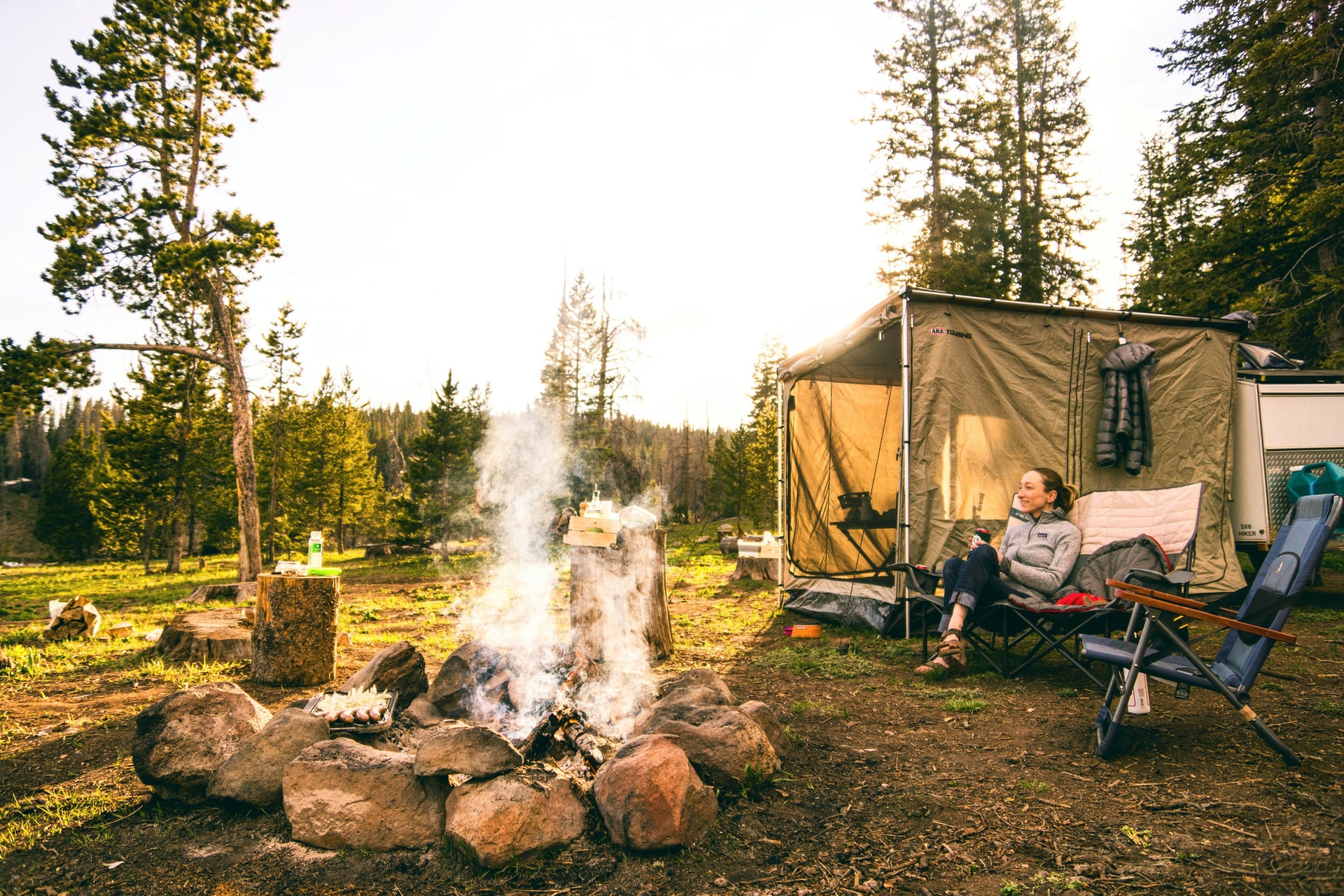If you’re looking to go camping with your family or a group of friends, you might be considering a pop-up camper! After all, it’s much more convenient than a traditional tent.
Understandably, though, the idea of using a pop-up camper can be worrying, especially if you’re going camping in the middle of a wild forest.
The number one question that’s probably on your mind is, “Are pop-up campers safe?” Well, the answer to that question is, it depends.
The way a pop-up camper is built does make it more comfortable and a safer option than a tent for camping! However, if not well-maintained, a pop-up camper could be unsafe.
Why Consider a Pop-Up Camper?
Before we get to discussing the safety of pop-up campers, one needs to know what exactly is a pop camper! Picture a combination between a recreational vehicle and a plain old tent.
The main reason people opt for a pop-up camper is that it’s comfortable, yet it offers the same earthy feeling you get when you go camping in a tent.
The vehicle looks like a small RV at first glance, but it can be stretched out to fit several people. It’s easy to store and easy to set up, which is what makes it great for camping.
Another huge perk of pop-up campers is their many uses! Most people use it for camping, but it can be used as a cheaper alternative to a motorhome.
An average pop-up camper includes a stove, sink, and two queen-sized beds. So if you’re on a budget and prefer living on the road, then you might want to consider getting a pop-up camper.
Are Pop-Up Campers Safe?
After hearing all of the benefits of a pop-up camper, you might be thinking, “There must be a catch.” “What if the only reason they’re so cheap is that they’re dangerous or don’t last long?”
I’m glad to tell you that it’s not the case! As long as you buy the pop-up camper from a trusted manufacturer, it’s good to go.
If you’re getting a used pop-up camper, just make sure not to go for one that was manufactured over 10 years ago (unless it’s well maintained).
Of course, there are a few exceptions and certain rules you need to uphold to keep your pop-up camper safe, but overall, the vehicle is certainly safe!
What Makes Pop-Up Campers Safe?
A decent pop-up camper will be made out of a rugged frame that holds things together during stormy or windy weather, whereas a traditional tent will most likely succumb to the weather.
And to avoid getting blown out on windy days, quality pop-up camper manufacturers will install hard walls.
The roof of a pop-up camper will also be water-resistant and leakproof to ensure that you won’t get drowned on rainy days.
The interior, especially that of the storage area, will be made out of water-resistant material so you don’t risk damaging any of your belongings.
Another guarantee of safety is tear-resistant and leak-proof screens that keep the inevitable bugs that will try and get into your pop-up camper at bay.
If your pop-up camper includes these features, it’ll be much safer for camping than a tent. If it doesn’t, however, not only will you be risking the safety of yourself and your loved ones, but you’ll also inevitably waste a lot of money on repairs and maintenance.
How to Keep Your Pop-Up Camper Safe?
There are a few things you need to do (or avoid) to make sure your pop-up camper is safe during a camping trip, including:
1. Avoid Snowstorms, Thunderstorms, and Floods
Pop-up campers do not have heating systems, so during a snowstorm, not only will you freeze, but you might risk sliding off or getting snowed in.
So during a snowstorm, it’s best to just remain indoors at a place with proper heating and avoid roaming around in your pop-up camper.
A pop-up camper’s sturdy metal frame will keep you safe during windy days, but it will be a bit dangerous during thunderstorms since metal is a good conductor of electricity.
2. Invest in Stabilizer Jacks
Even though a pop-up camper’s roof is sturdy, you can guarantee sturdiness during even the windiest of days with a handy set of stabilizer jacks.
Stabilizer jacks are complementary to your pop-up campers and cost only around $50. They’ll help prevent the risk of wind damage, which can cost you thousands of dollars in repairs.
3. Practice Proper Maintenance on Your Pop-Up Camper
Maintaining your pop-up camper is not as hard as it may sound. The key points to remember are:
- Storing away the camper properly
- Taking care of the tires
- Keeping the water tank clean and well kept
- Paying attention to the state of the camper’s canvas
4. Never Exceed the Camper’s Weight Limit
An average pop-up camper can carry up to 1,000 pounds, but just to be on the safe side, search up the exact model of your pop-up camper on your manufacturer’s site to get a precise number.
It is very important to stay within the weight capacity limit, as overweighting your pop-up camper can cause it to break down and even shorten its lifespan.
Since the furniture on the camper takes up considerable weight, the 1,000 pounds doesn’t only include the people in the vehicle. So a good tip is to add up everyone’s weight and add around 400 pounds to it. As long as the sum is below 1,000, then you should be good to go!
Final Words
So are pop-up campers safe? For the most part, yes! As long as the camper is well-maintained and of good quality, then you should have nothing to worry about.
Now that you’re all up-to-date on pop-up campers and their safety, you’re ready to gather your friends and family, pack your trail mix, and enjoy the wonder and beauty of nature!

